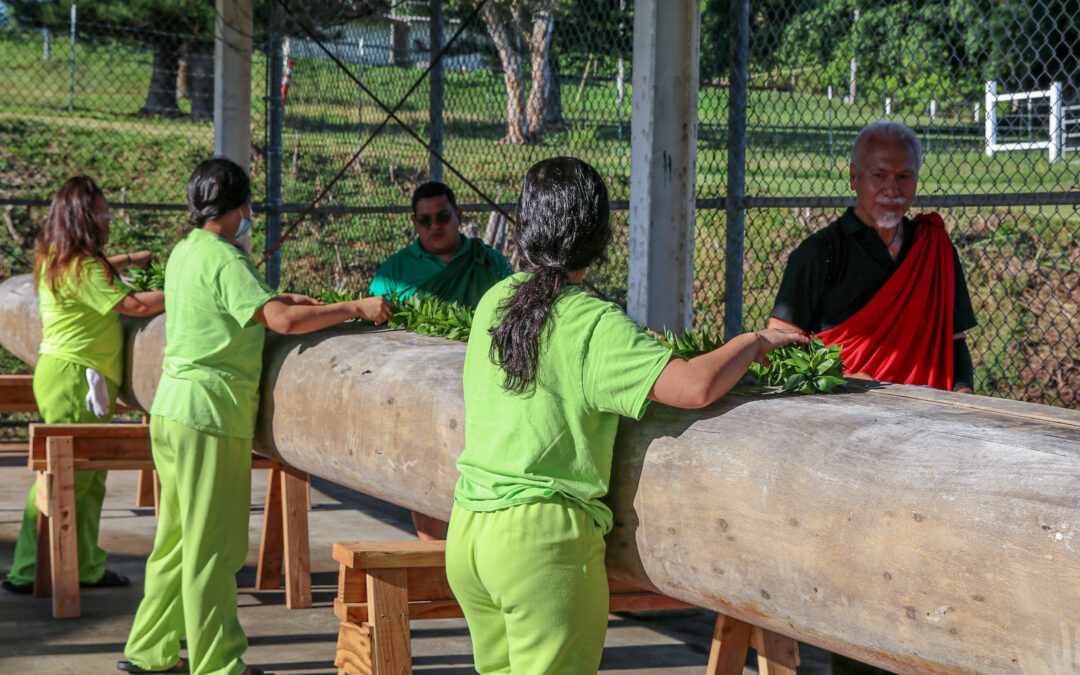Originally shared on Midweek’s Proof Positive series by Annabelle Le Jeune on Dec. 14 2022, click here to read.
The Olomana mauna and the Koʻolau’s nestle a 500-acre campus where young people farm kalo, work out, repair an age-old waʻa (canoe), obtain their GED, or engage in other skills training and Hawaiian cultural programming on any given day.
The Kawailoa Youth and Family Wellness Center is a puʻuhonua, or sanctuary, for opportunity youth who need a safe place to heal, learn, and successfully transition back into society. The campus embodies an ecosystem of support where the state’s Hawaiʻi Youth Correctional Facility and Olomana School partner with community organizations Partners in Development Foundation and its Kupa ʻAina Farm, Hale Kipa’s Hale Lanipōlua, Kinai ʻEha, and Residential Youth Services & Empowerment.
Together, the consortium of state and community partners known as the Opportunity Youth Action Hawaiʻi hui (OYAH) are continuing the headway that has reduced the youth incarceration rate in Hawaiʻi by 82 percent over the last decade. And, they are working toward zero youth incarcerated.
In October, the Kellogg Foundation recognized OYAH’s project, “Kawailoa: A Transformative Indigenous Model to End Youth Incarceration” as one of five global awardees to receive $20 million over the next eight years as part of the Racial Equity 2030 challenge. The fundamental support from the Kellogg Foundation network will strengthen OYAH’s existing programs, expand outreach efforts, and further advocate for youth beyond Hawaiʻi.
The Kawailoa campus partners are steadfast in its efforts to combat years of generational and historical trauma stemming from colonization and the illegal overthrow of the Hawaiian Kingdom. Disconnected from their ʻāina, history, and identity, there have been few means to nurture Native Hawaiians through the impacts of the past. Native Hawaiians and Pacific Islanders are overrepresented at every stage in the justice system— and on their own homelands.
That’s why OYAH utilizes therapeutic, indigenous methods to empower Hawaiʻi’s most vulnerable youth population. The Hawaiʻi project will collect data and host cultural exchanges with other BIPOC and indigenous communities facing similar challenges and forward a vision of indigenous youth as leaders of social justice, not victims of justice systems.
OYAH welcomes community support and engagement to learn more and support Hawaiʻi’s youth. Learn more about the projects that encourage youth voices and partnerships at wearekawailoa.org

